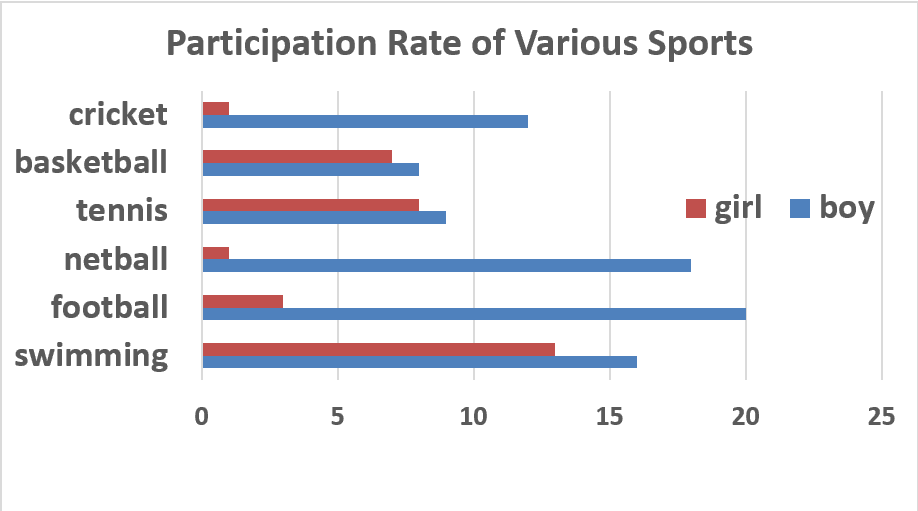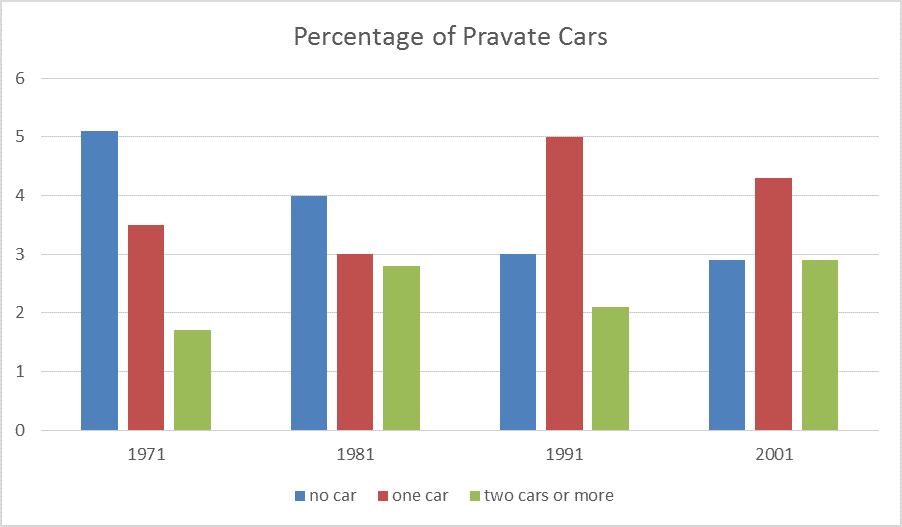托福独立写作如何给出合理观点避免扣分?立论点需躲开这2个雷区,今天小编给大家带来了托福独立写作如何给出合理观点避免扣分 ,希望能够给帮助到大家,下面小编就和大家分享,来欣赏一下吧。
托福独立写作如何给出合理观点避免扣分?立论点需躲开这2个雷区
托福独立写作观点扣分情况分析
在托福考试的两篇作文要求中,综合写作因为其文章要求所以不存在观点方面的扣分,而独立写作由于需要更为完整的论述过程,因此对考生在提炼和展开文章论点方面就由较高要求了。考生在论点上出问题的情况主要有以下两类:
1. 观点太空泛无法写全写透
相信看过一些托福写作指导经验类资料的考生都会发现,指导经验中经常会要求大家尽量树立一些比较具体细节的观点来写,这其实很好理解,因为越具体能写的东西就越多。太过抽象空泛的观点想要写好,论述得言之有理是比较困难的,而且经常会出现论述不全面或是没有展开就结束的问题。考虑到托福写作的时间有限,观点树立得太空泛就相当于考生自己给自己挖坑,最后论述不到位缺乏说服力其实都是因为自己没有树立好观点。
举例来说,某篇作文的题目是关于移动电话对人类生活的影响。如果考生写出的是很宽泛的“移动电话对人类生活影响很大”,虽然之后看似可以写很多内容,但实际上是很容易写不到点子上的,因为能说的话太多大家反而不知道如何突出重点了。这种时候大家其实完全可以写移动电话对衣食住行中任意一点的影响。有了更为细节的内容,展开起来才会更加方便,考生也能根据自己的喜好给出更有说服力的论据,提升文章内容的质量。
另一篇作文的题目是广告带给社会的干扰。既然是干扰当然应该有具体内容。如果观点只是说广告会产生负面影响那也有观点太空泛的嫌疑,之后具体要展开同样会不太好写。大家可以收缩一下观点,比如从广告的误导性来具体展开,是不是脑子里一下子就多出了很多例子有很多话想说了?想要让文章内容更有干货,观点太过空泛是一定要避免的。
2. 论点太窄无法进一步展开
另一种比较常见的论点则与上面的情况正好相反,那就是论点太窄了。大家需要明白一点,一篇理想的高分独立写作文章,考生不仅需要有主论点,也需要有分论点,2-3个中间段其实就是让大家在主论点的基础上拓展出多个分论点然后分段论述的。如果考生的主论点就太过狭窄,那么后续拓展分论点就很难继续下去了,无话可写只能翻来覆去重复主要论点,文章的水准可想而知。
小编同样举个实例来说明论点太窄的危害性。比如某次考试的题目是讨论为什么有些人喜欢参加危险的极限运动。如果你直接给出的观点是极限运动能够放松自己缓解生活压力。那这个论点想要进一步展开的空间其实就很小了。但如果你把论点写得宽一点,比如极限运动能够带来很多益处,之后完全可以把缓解压力作为分论点来写,这样的论点既方便自己展开观点,也更容易找到各类论据进行论述支持。
总而言之,对一篇类似于托福独立写作要求的立论文来说,观点太空或是太窄都是大忌,会给自己后续的论述展开带来很多困难。小编希望大家通过上文内容学到正确的树立提出论点的写作思路,结合合理论述写好托福独立作文。
托福独立写作难点话题思路解读和高分范文赏析:is progress always good
托福写作难点话题一览
Is progress always good?
Do you agree or disagree that progress is always good? Use specific reasons and examples to support your answer.
写作思路展开结构分析
大家在审题的时候需要注意一个词always。这个词是一个绝对的修饰词,用来陈述观点是很极端的,因此直接agree很容易写偏,所以这道题目建议大家选择disagree。具体思路可以这么写,进步在大多数的时候是好的,比如电的发明、交通方式的进步、通讯方式的改良等等,但是进步有时候也会带来一些副作用,给人们造成意料之外的困扰等等。
本话题高分范文赏析
Progress can be measured in many ways, but one very tangible way to measure progress is by looking at economic development. In these terms, progress can be seen as a very positive force, helping many people rise up from poverty. But history shows that progress, even as measured by economic progress, always has its cost. Take Germany in the 1930's for example. Humiliated by unequal treaties after World War I, the German people were suffering from a terrible economy and massive inflation. Then Hitler took power and mobilized the German economy, in several years the Germans economy had recovered and was actually becoming among the most powerful in Europe. But Hitler's economic miracle came at a terrible price. His plan was to use Germany's economic power to finance its military power. Germany's aggression sparked World War II, a catastrophe that killed tens of millions of people all over the whole world, including countless millions of civilians. When progress serves evil, the result hurts. Likewise the progress of America, arguably the most advanced of all nations, has come at a heavy price. America used to be the land of native Americans. America's current "progress" would probably not have been achieved if most of the land in America still belonged to the Native Americans. From their perspective, America's current progress is their profound loss. Finally, China's economic growth over the past 25 years has been truly remarkable. Standards of living have gone up dramatically, but the progress has negative aspects as well as the obvious positive ones. As income gaps between the rich and the poor widen, social problems like crime and poverty become more pronounced. The damage done to the environment by factories and "progressive" human activity might not be undone for hundreds of years, affecting the lives of Chinese people for generations to come. If these problems are not addressed, our grandchildren might truly come to regret current alleged "progress."
托福独立写作难点话题思路解读和高分范文赏析:does history have value for present people
托福写作难点话题一览
Does history have any value for people living in the present?
Learning about the past has no value for those of us living in the present. Do you agree or disagree? Use specific reasons and examples to support your answer.
写作思路展开结构分析
这个题目的立场很明显,用了NO这种绝对意义上的修饰词,想也知道不能同意了,否则就会很难写。因此建议大家选择不同意,然后旗帜鲜明地列出学习历史了解过去的各种好处理直气壮地反驳回去就可以了。这方面的例子有很多,大家可以选择一些发生在过去比较严重的错误或者对很多人造成伤害的事情来写,只要列出三个values or advantages of learning history就可以了。
本话题高分范文赏析
People live in the present. They plan for and worry about the future. History, however, is the study of the past. Some people might ask, "Given all the demands that press in from living in the present and anticipating what is yet to come, why bother with what has been? Given all the desirable and available branches of knowledge, why insist—as most American educational programs do—on a good bit of history? And why urge many students to study even more history than they are required to?" However, it's undeniable that learning about past has its value, it will help us understand people and societies, and it will help us understand change and how the society we live in came to be. History helps us understand people and societies. In the first place, history offers a storehouse of information about how people and societies behave. Understanding the operations of people and societies is difficult, though a number of disciplines make the attempt. An exclusive reliance on current data would needlessly handicap our efforts. For example, how can we evaluate war if the nation is at peace—unless we use historical materials? How can we understand genius, the influence of technological innovation, or the role that beliefs play in shaping family life, if we don't use what we know about experiences in the past? Consequently, history must serve, however imperfectly, as our laboratory, and data from the past must serve as our most vital evidence in the unavoidable quest to figure out why our complex species behaves as it does in societal settings. This, fundamentally, is why we cannot stay away from history: it offers the only extensive evidential base for the contemplation and analysis of how societies function, and people need to have some sense of how societies function simply to run their own lives. History also helps us understand change and how the society we live in came to be. The second reason history is inescapable as a subject of serious study follows closely on the first. The past causes the present, and so the future. Any time we try to know why something happened—whether a shift in political party dominance in the American Congress, a major change in the teenage suicide rate, or a war in the Balkans or the Middle East—we have to look for factors that took shape earlier. Sometimes fairly recent history will suffice to explain a major development, but often we need to look further back to identify the causes of change. Only through studying history can we grasp how things change; only through history can we begin to comprehend the factors that cause change; and only through history can we understand what elements of an institution or a society persist despite change.
托福独立写作难点话题思路解读和高分范文赏析:is technology students' helper or not
托福写作难点话题一览
Technology, students' helper or not?
Do you agree or disagree with the following statement? With the help of technology, students nowadays can learn more information and learn it more quickly. Use specific reasons and examples to support your answer.
写作思路展开结构分析
不能完全同意。要表明It is largely true that (把statement换个句子结构写进来)。 How technologies help students learn more information? (互联网;电子书籍) How technologies help students learn more quickly? (电子字典;电子文本的搜索功能) But some times technologies handicap learning. (电子游戏) 结论,学得多,学的快,还要靠一些其他的因素,比如,毅力。Technology can help a lazy student nearly nothing.
本话题高分范文赏析
It is undeniable that continuously developing technologies have brought tremendous benefits, especially in learning area. Learning has in many ways become easier than has ever been before. Take learning English for example. In the past, few students owned tape recorders, and learning materials were scarce as well. But today, tape recorders get more and more inexpensive, and diversified learning materials are readily available. On the other hand, new devices, such as MP3 or MD players, are offered in market, and relevant learning materials (MP3 files) are easily and freely downloadable from the Internet. However, it is a little bit haste to assert students can learn more information and learn it more quickly simply because technology helps, since technologies, as always, contribute both benefits and detriments. For example, computers, as have been mentioned, help students a lot in various ways, but at the same time have many negative even harmful impacts on the users. Most students nowadays play computer games, sitting before the table, staring at the screen, clicking mouse button, and the outcomes are cerebrum fatigue, visual deterioration and another day of waste. Chatting on the Internet is another great way to kill precious time, and one of negative side-effects of key -board dependence is that students nowadays can seldom spell correctly. Worst of all, investigations have shown that more than half of time that students have spent online was exhausted on browsing porn movies, pulp fictions or erotic photos and so on. Students certainly want to learn more and to learn more quickly. But merely technology itself is not the solution. Learning itself is a skill and it only develops by practice. Computers and other devices can certainly help, but they won't make study any less painful, and technologies in fact provide no solution to overcome indolence that everyone has. Learning has never been easy, and will not be easier merely because of technologies. It always requires tremendous efforts and determination to learn something well. Too much advocacy on the fancy benefits of technologies will mislead much more than virtually help.





